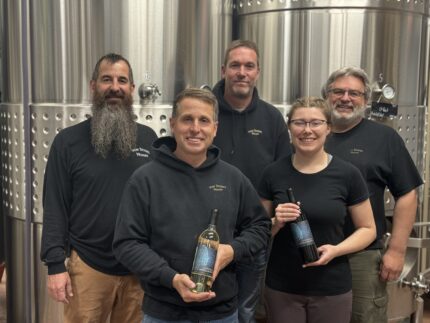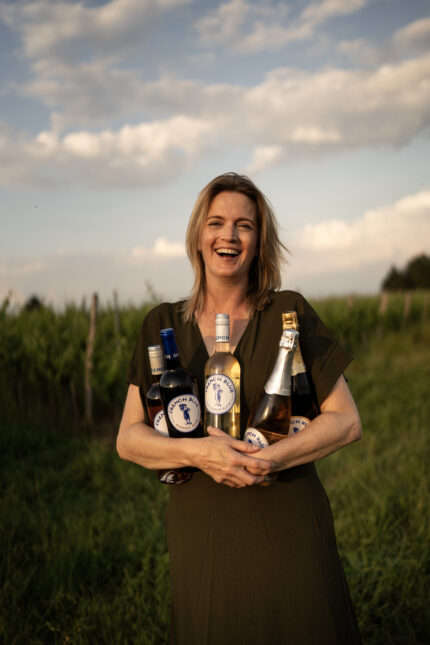Riboli Family Wines is a story of reinvention. I could tell the story of when the patriarch of a family of Italian immigrants came to California in 1910, or when it reinvented itself to offer communion wine during Prohibition just two years later, or the story of a son who went down the path of a traditional enologist to make the wines better.
It’s all the fabric of what makes Riboli Family Wines a special place. I had a chance to sit down with Anthony Riboli for dinner to hear more about their story.
It all started when Santo Cambianica (Anthony Riboli’s great-great-uncle) came to Los Angeles. He founded San Antonio Winery on Lamar Street in 1912. As you probably know, some of the earliest California wineries were founded by Italian immigrants and are still operated by family members.
Two years later, Prohibition began. With luck or divine intervention, the Archdiocese of Los Angeles gave the winery permission to provide wines for sacramental and ceremonial purposes. Fewer than ten California wineries remained after Prohibition ended.
Anthony Riboli’s grandfather, Stefano Riboli, was introduced to Maddalena Satragni and was instantly enthralled with “the beautiful woman he saw driving a tractor.” He was very tenacious about courting her, and they married in 1946. When Santo died, the couple took ownership of San Antonio Winery (named after St. Anthony with no Texas connection). The family now has vineyard locations in Monterey, Napa Valley and Paso Robles (the company also has tasting rooms in Los Angeles, Ontario and Paso Robles). Maddalena, who handled bookkeeping and compliance, just turned 100.
She had a vision of creating a tasting room, which they believe was the first in Los Angeles. Back in 1972, they couldn’t sell wine in supermarkets, so the direct-to-consumer model was the only way. Then she decided they needed to offer food and created a restaurant within the winery. Anthony described her as a “Julia Child and Robert Mondavi” hybrid. Her lasagna has always been on the menu and continues to be the best-selling item.
The business had many iterations. It shifted from a model of processing grapes to owning vineyards. Today Riboli Family Wines is based in Los Angeles, but the family owns over 1,200 acres of vineyards in Paso Robles, Napa Valley and Monterey. The family has the San Simeon, Highlands 41, Maddalena, Opaque, Windstream, Riboli Family Wine brands as well as Stella Rosa wines.
The family knew a lot about wine, but not winemaking, so Anthony decided to go to UC Davis to get his enology degree. This began the next step in the renovation story. “I wanted to start the change and evolve what we were doing to make better wines,” Anthony said. It was about trying new innovations and looking at new methods like the barrels we use.
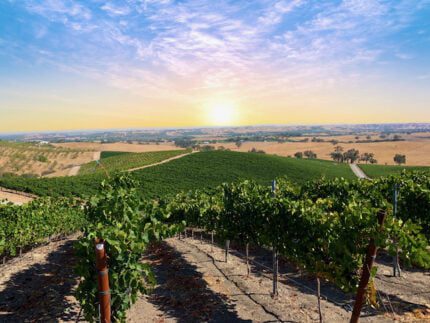
Most importantly, it became a story of becoming sustainable and controlling the wine from ground to glass. Improving the winery through solar power, water conservation and using cover crops to produce high-quality grapes and wine became a mission. Since 2019, Riboli Estate Group (REG) has kept certifications from the California Sustainable Winegrowing Alliance for all of its estate vineyards, as well as the Paso Robles winery.
Anthony told a funny story about a family member who visited a winery in the beginning and couldn’t believe all the weeds. “He thought we weren’t doing our job. I had to explain the interconnection of cover crops, native plants, and pest management to make better wine.”
This was the line-up of our wine and dinner at Dakota’s Restaurant:
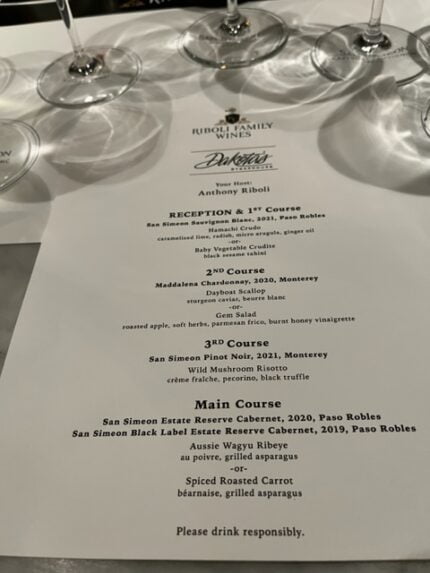
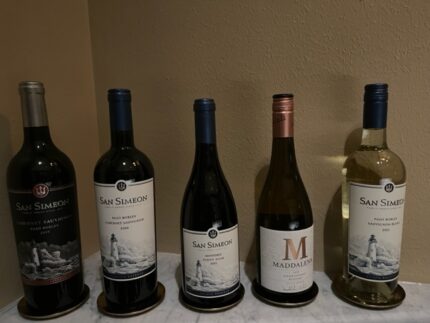
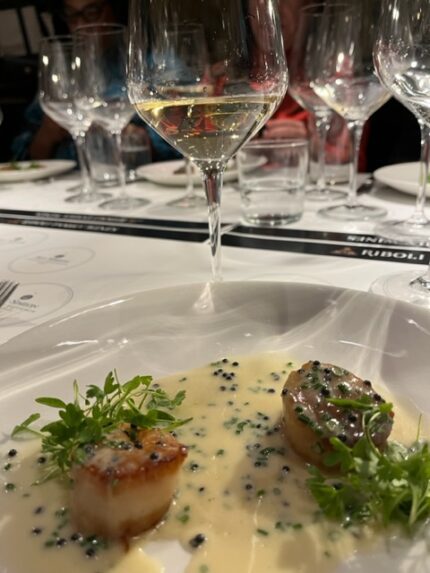
- 2021 San Simeon Paso Robles Sauvignon Blanc – notes of jasmine, pear, citrus and a great acidity.
- 2020 Maddalena Monterey Chardonnay – a blend from three vineyards, I tasted lots of tropical fruit, lemon, orange and spice.
- 2021 San Simeon Monterey Pinot Noir – lots of red fruit, dark chocolate, pepper and herbs. This was my kind of Pinot.
- 2020 San Simeon Paso Robles Cabernet Sauvignon – notes of black and blue fruit, Asian spice, tobacco and a hint of chocolate.
- 2019 San Simeon Paso Robles Reserve Cabernet – this blend of 80 percent Cabernet and 20 percent Petite Verdot was elegant and rich. Lots of black fruit, vanilla, chocolate, floral and herbal notes.
Antony talked about the three things that distinguish Riboli Family Wines. It’s the story of family, its growing grapes on estate vineyards, and the commitment to sustainability. It’s a story of five generations who create a legacy for the future.

